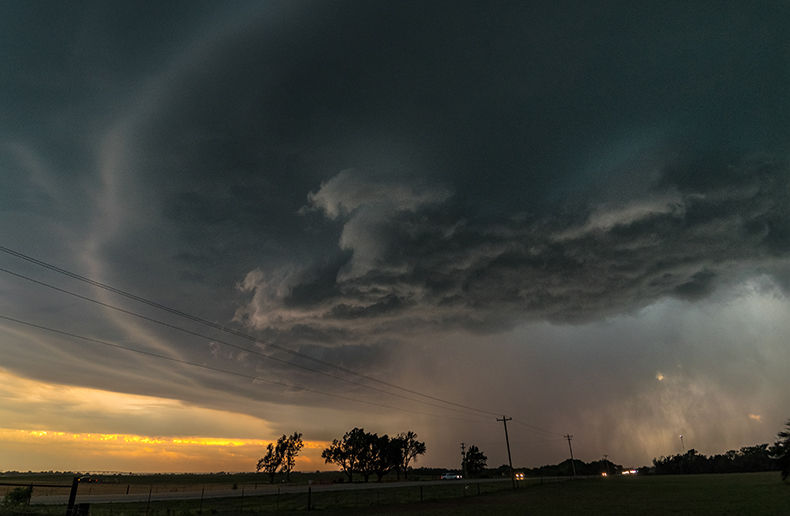Financial planners have difficult roles to play in a world of increasing complexity, speed and surprise, Thomas Homer-Dixon, chair of global systems at the Balsillie School of International Affairs in Waterloo, Ont., told delegates to the Financial Planning Standards Council’s Vision 2020 Symposium in November.“We’ve moved from a world of risk to a world of uncertainty,” said Dr. Homer-Dixon, bestselling author of The Ingenuity Gap, an examination of a world that has become too complex and too fast-paced to manage. He cited a number of global crises that have arisen in recent months: the conflict in eastern Ukraine over control of the Crimean Peninsula, the rise of the Islamic State of Iraq and the Levant (ISIS) in the Middle East, the Ebola epidemic in West Africa, and the collapse of world oil prices. “What is going on?” he asked.
He maintains that the possibility of charting a fairly predictable future has waned. “Anyone who says he knows what will happen in the future is talking nonsense. It’s a really scary world right now,” he said. In his presentation, he discussed the plethora of challenges our world faces, their interrelation, and the potential for violent upheaval that they have created.
Universe of unknowns
One of these challenges is the world economy. “In a universe of unknowns, we no longer think of 8% returns on our investments,” Homer-Dixon said. “We have to acknowledge that we can’t make these predictions any more…and we can’t manage risk in predictable ways.”
And this makes the work of financial planners increasingly difficult. Advisors, Homer-Dixon said, need to build resilience into their financial plans, he said. “Clients who have had a few bad hits may look to you as their saviour, but you are not necessarily doing them a service if you present a financial plan to them with complete assurance. A plan that may have been good for eight years 40 years ago may not be good for two right now – and the changes that will need to be made to it will be more substantive.”
Financial planners also need to help their clients become more resilient by increasing their financial knowledge, he added. “Resilient people, institutions and societies have the capability to withstand shock without catastrophic failure.”
Empowering clients
In today’s changing world, planners and their firms need to be constantly moving to higher ground, Robert Veres, U.S. futurist and author of The Cutting Edge in Financial Services, said in his presentation. And empowering clients is one of the ways to do this.
Veres said planners need to get clients involved in the financial planning process, and he gave a snapshot strategy for co-creating a customized financial plan with a client – instead of for a client.
In the first get-to-know-you meeting, the planner should try to get a handle on the client’s life goals by asking questions such as “What does prosperity mean to you?” and “What inspires you?” And then have the client to go home and think about how he would answer these questions.
Co-creation proccess
In the second meeting, the client’s goals are put up on a big screen. The client then estimates the cost of realizing these goals. At this point, a staff member steps in and goes over the client’s account with him to see if his assets will allow him to realize his dreams. The third meeting may involve helping the client decide what is really important to him, and if necessary, refine his goals to accord with his financial data.
The fourth meeting involves co-creating the financial plan. And a fifth meeting can be dedicated to refining the plan and making lifestyle decisions.
Co-creating a financial plan builds the client’s financial knowledge, Veres said, and at the same time it builds the client-advisor relationship. “Most people are leery about entering a leap-of-faith relationship with a person they’ve just met. The co-creation process lets clients create their own bargain with the future.”
He suggested that financial planners provide clients with goals-based performance statements. “Ask clients to write down 30 goals they would like to achieve. The mere act of writing them down will make clients more likely to realize them,” he said.
Veres added that financial planners have a lot to learn about running their businesses from the robo-advisors – online operations that build investment portfolios based on online questionnaires, and monitor and rebalance these portfolios on an ongoing basis. “There are many things robo-advisors don’t do for clients,” he said, “but they have effectively commoditized some of the labour-intensive, least creative activities in a financial planning business.”
The value that you provide is the time you spend in front of your clients. To get enough of that time, Veres said, you may need to outsource many of the services that the robo-advisors offer – rebalancing portfolios, handling payroll and filling out forms. “Compile a don’t-do list as your first step in creating a front-office-only firm,” he said.






